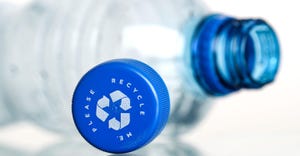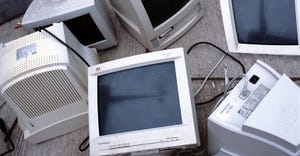10 Ways Industry Workers Can Beat the Heat
In honor of National Hydration Day, industry leaders from the National Waste & Recycling Association and the Solid Waste Association of North America share tips for avoiding heat illness.
Summer is officially here, and the waste and recycling industry is gearing up for extreme temperatures.
Each year, thousands of workers in the U.S. suffer heat-related illnesses and injuries. In 2014 alone, 2,630 workers in the U.S. suffered heat-related illnesses and 18 died from heat stroke and other heat-related causes, according to the Occupational Safety and Health Administration.
"Particularly during the summer, it is important for all workers to stay hydrated,” says Solid Waste Association of North America CEO and Executive Director David Biderman. “This means drinking fluids, preferably water, on a regular basis, to guard against heat stroke and muscle cramps."
In an effort to help industry members beat the heat, industry leaders from the National Waste & Recycling Association and the Solid Waste Association of North America have provided 10 tips for avoiding heat-related illnesses and injuries.
"Water (hydration), rest, shade and recovery are core components of our industry employers' successful heat-Illness prevention program," says National Waste & Recycling Association National Safety Director Tony Hargis. "They are also the least understood, planned and underutilized ways to improve employee health, safety, productivity and life outside the workplace. NWRA's Water.Rest.Shade. Safety Stand Down provides employers, employees and partner organizations with the tools to successfully plan, implement, audit and improve employee health and safety."
1. Stay hydrated. Drivers should be drinking 5 to 7 ounces of water every 15 to 20 minutes to stay hydrated. The Center for Disease Control says when workers refrain from drinking until they “feel thirsty,” it is often too late.
2. Have regular and easy access to water. If it is difficult for employees to obtain water or to refill containers while working or on breaks, that issue needs to be addressed.
3. Fuel up on nutrients. Staying hydrated with water is important, but refueling your body of the nutrients and electrolytes it loses throughout the day is also an important step to staying hydrated and healthy. Sports drinks, such as Gatorade or Powerade, may help replace the salt and electrolytes lost by the body on hot days. Sugary drinks and sodas, however, should be avoided.
4. Listen to your body. Address hunger or thirst signs immediately to avoid potential illnesses or incidents. If your body is giving you signs that you need a mental or physical break, listen to those signs and take the necessary precautions to ensure the safety of yourself and others before returning back to work.
5. Dress for success. Wear light-weight, light-colored and loose-fitting clothing to keep your body cool. A hat and sunscreen will also help protect against sunburn which could interrupt the body’s attempts to cool down on hot days.
6. Keep cool. It is important to stop all activity when feeling faint or weak. Use a fan and take occasional breaks, preferably in the shade. Rest in the shade or in an air-conditioned building to cool down.
7. Work as a team. Keep an eye on coworkers, especially those new to working in high temperatures. Educate yourself and other team members on the indications of heat-related fatigue, such as confusion, loss of consciousness, headaches, nausea, seizures, cramping, dizziness, hot and dry skin and rapid, shallow breathing.
8. Take training courses. Educate yourself on the proper ways to stay safe on the job and the proper procedures that should be followed in case of an emergency.
9. Take it easy. Pace yourself and gradually increase activity on your first days of working in the heat. Get your body used to working in high temperatures before taking on additional work or making any changes to your daily schedule.
10. Give your body time to recover. Doing off-work hours, make healthy eating decisions, drink plenty of water, avoid alcohol and drugs, perform easy and light stretches and carve out some time to kick back and relax.
About the Author(s)
You May Also Like




